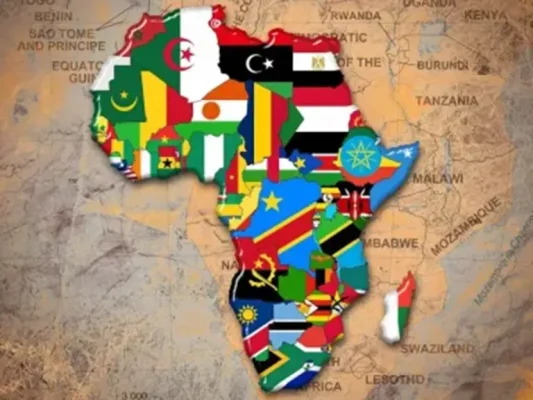As the Africa Climate Week (ACW) and the Second Africa Climate Summit (ACS2) unfold in Addis Ababa, Ethiopia, the African Union (AU) is stepping forward to lead the charge for a realistic, people-centered, and African-driven climate agenda. This moment signals a shift in Africa’s climate diplomacy—from one of vulnerability to one of vision, leadership, and innovation.
The urgency of now
Africa is no stranger to the devastating impacts of climate change. With rising temperatures, prolonged droughts, and devastating floods, the continent remains on the frontline of the climate crisis—despite contributing less than 4% of global greenhouse gas emissions.
Recognizing this injustice, the AU is using Africa Climate Week 2025 as a platform for transformation, not just protest. The message from Addis Ababa is clear: Africa will not be a dumping ground for false solutions or outdated fossil fuel systems. It will be a climate leader on its own terms
Rejecting false solutions
As global interest in Africa’s natural resources and energy potential grows, so too does the pressure to adopt so-called “quick fixes”. These include:
Carbon offset schemes that displace communities,
Large-scale geoengineering projects with uncertain consequences,
Fossil gas expansion sold as a “transition fuel”,
Land-intensive bioenergy threatening food security and ecosystems.
The AU, backed by African civil society and environmental coalitions, is making a strong stand against these false solutions. As AU Chairperson Mahamoud Ali Youssouf stated in his opening remarks, “Africa must not become the testing ground for failed technologies or external agendas. Our solutions must be rooted in our soil, our people, and our future.”
A realistic and African-made agendas
At the heart of the AU’s climate leadership is a realistic climate agenda—one that balances:
Development goals (e.g., energy access, poverty reduction),
Climate resilience (e.g., sustainable agriculture, water security),
And economic transformation (e.g., green jobs, infrastructure).
This agenda is anchored in African realities, not Western models. From Ethiopia’s Green Legacy Initiative—which has planted over 30 billion trees—to Kenya’s leadership in geothermal energy, Africa is already innovating.
At the Summit, African nations are showcasing:
Decentralized renewable energy,
Climate-smart agriculture,
Nature-based solutions,
And youth-led tech innovation
These examples provide a blueprint for sustainable growth that other regions can learn from.
Saying no to fossil fuel lock-in
One of the most contested issues at this year’s Summit is Africa’s role in the global phase-out of fossil fuels.
While some leaders still view oil and gas as pathways to development, the AU is increasingly recognizing that:
Fossil fuel projects are slow, capital-intensive, and high-risk in a rapidly decarbonizing world.
Revenues often do not reach local communities and are vulnerable to corruption.
Continued investment in fossil fuels undermines Africa’s renewable energy potential and climate credibility.
Instead, the AU is positioning Africa as a clean energy powerhouse, with vast potential in solar, wind, and hydro. The African Union Commission is working on a continent-wide strategy to scale up green energy infrastructure, attract sustainable investment, and foster regional cooperation on energy access.
Finance, equity, and global accountability
Another central theme at ACW 2025 is climate finance and justice. Despite mounting needs, Africa receives only a fraction of global climate finance—less than 1% annually.
The AU is using this summit to call for:
Full delivery of the $100 billion annual pledge,
Reform of the global financial architecture to be more inclusive,
Creation of a Loss and Damage Fund that serves African communities fairly,
And new debt relief mechanisms tied to climate resilience and green transition.
Ethiopia’s Prime Minister Abiy Ahmed echoed these demands: “Africa is not here to beg. We are here to bargain for what is rightfully ours—for the finance, the technology, and the trust that was promised.”
Toward a just transition
Ultimately, the AU’s leadership at this year’s Africa Climate Week reflects a deeper commitment to a just transition. One that:
Protects vulnerable populations,
Respects indigenous rights and traditional knowledge,
Supports youth and women in green innovation,
Builds a resilient, inclusive climate future for all Africans
This is not climate action imposed from above, but climate action grown from within.
Conclusion: A turning point for Africa
Africa Climate Week 2025 in Ethiopia is more than a series of speeches and side events. It is a turning point—a moment where the AU is stepping into its role not as a climate victim, but as a climate visionary.
By rejecting false solutions, phasing out fossil dependence, and championing African-made innovations, the African Union is proving that a realistic, ambitious, and just climate agenda is not only possible—it is already underway.
Nwafor is the Executive Director FENRAD Nigeria


